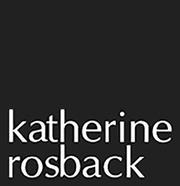Good morning! Did you have a nice weekend? I am asking you this because there’s a good chance you’ll be asked it several times on a Monday morning (assuming, of course, you just got back from a weekend away). You’ll probably reply with a “Ya” or “I did; how was yours?” or something along those lines. You’ll probably not go into a lengthy diatribe about what you did and why it wasn’t as good as you wanted it to be. And these types of insights are what conversation analysis can provide to team leaders or facilitators.
I know this because this question is most likely not “hearable” to you as a question about your weekend, and your conversation partner didn’t mean it as a question looking for information. It is—both for you and your conversation partner—what we conversational analysts call a “conversational greeting ritual.” It’s on the same level as a “Hey! How are you?” question. In the “How are you” question, again, the questioner isn’t looking for information about your emotional state or physical condition but adds these three words as a part of the “normal conversational ritual” in our culture.
I remember the time when I was facilitating a group of engineers on their inaugural visit to the U.S. When the workshop began, I inquired about their impressions of the U.S. since it was their first time visiting. Speaking through their translator, one person responded, “You are all very nice!” When I asked what gave him that impression, he replied, “Because everyone you meet asks ‘How are you?’” (My response, “But we don’t really mean it!” likely damaged their positive perception of the U.S.)
DEFINTION
So, what’s the definition of conversation analysis, and what makes this a topic and skill that might be of interest to you? Answering the first question, conversation analysis (CA) is an in-depth “listen below the words” examination of verbal exchanges in action. Taking a CA approach involves studying the subtle pauses, turn-taking strategies, and other speech acts that shape our everyday interactions to understand what the talk is trying to do. In other words, what goal is achieved by saying what we said in the way we said it?
In this light, questions such as “How are you?” or “Did you have a good weekend?” have the objective of connection. We’re not looking for information but simply connecting through talk phrases. Think tribal talk. And this tribal talk can be understood differently depending on one’s country of origin, as previously noted. To add another example of this, in a recent facilitation workshop in Brazil, a participant inquired about the tendency of Americans to say, “We should catch up sometime” at the end of a conversation, only never to make plans. After discussing conversational rituals, the participant laughed and responded, “In Brazil, if you mention getting together, people start checking their calendars and asking, ‘When?'”
To illuminate the power of this kind of listening for addressing team behaviors, allow me to share an instance from another facilitation workshop.
Consider the question, “What’s the talk trying to do when someone offers negative feedback on a proposal when there are only five minutes left in the meeting?” I posed this question to two project managers frustrated by a participant who consistently provided negative evaluations in the final five minutes of their meetings. This frequently impeded the project’s progress. I continued by asking, “What does this DO differently than sharing such comments in the middle of the meeting? What does this action successfully achieve?” Their expression was priceless as they grasped what was happening and what this participant was able to achieve. (I’ll exclude our discussion to see what interpretations you come up with in the comments.
HOW CAN THIS HELP YOU?
So, moving on to our second question, why might CA be of interest to you? My questions to explore this would include: As a team leader, do you sometimes struggle with team members who express support for a decision in a meeting, but then seem to change their minds once the meeting is over? Is analysis paralysis and continual re circling of decisions an issue you face? Is having a better customer understanding something you seek? Have you ever heard the client say yes, only to discover they were far from ready to sign?
If you answered yes to any of these questions, then CA just might be a skill that could assist you.
By listening below the words, CA is a powerful method to gain insight into the motivations and objectives or teams and customers, enabling us to create more impactful interventions and better questions—it’s indispensable to me as a facilitator or team leader. You can read more about it in my book, Asking is Better Than Telling or learn the skill in my workshops. But don’t just take my word for it! When you return to the office after a weekend off, put my ideas to the test and observe how people react when you give them a lengthy response about your weekend. (They might even start politely walking away.)
Have fun with your testing (and I hope you did have a good weekend).

1 thought on “Have A Nice Weekend?”